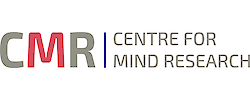Clinical neuropsychology/cognitive remediation
Many mental illnesses are known to also be associated with cognitive dysfunction. In the case of disorders such as psychosis, depression and ADHD, it has been shown that extensive diagnosis and subsequent individual treatment of these dysfunctions can contribute to an improvement of the disease.
Cognitive remediation can be divided into a diagnostic area and 3 subsequent therapeutic levels:
Neuropsychological diagnostics
First, a detailed neuropsychological diagnosis is carried out. Various cognitive functional areas, such as attention, memory, speech functions or planning capacity, are examined. The aim is to create individual functional profiles in order to put together a therapy program adapted for each patient.
Restitutive therapy
Here, targeted exercises are performed in different cognitive functional areas e.g. through cognitive training on the PC or with the help of tasks with paper and pencil, for example, in order to increase attention functions (ability to concentrate). The aim of this measure is to achieve a neural reorganization, i.e. a restoration of impaired function through intensive practice.
Compensatory therapy
This therapy is about teaching strategies so that cognitive functions can improve by using other skills or aids or the environment is better adapted to the needs (e.g. learning and using new cognitive strategies, use of organisational aids in everyday life or break management).
Integrative therapy
Through overarching thinking, the use of the knowledge learned in 2 and 3 is transferred into the everyday situation, e.g. behavioural management programs. Elements from behavioural therapy can also be used here. The aim is to treat psychosocial adaptation and disease management or to be acceptable to social, school or occupational reintegration.
The areas of cognitive rewriting are offered as individual and group therapeutic sessions. In addition, homework can also be done to consolidate what has been learned.
Staff: Neuropsychological examination
Claudia Hanses (TA)
Gabriele Herrmann















